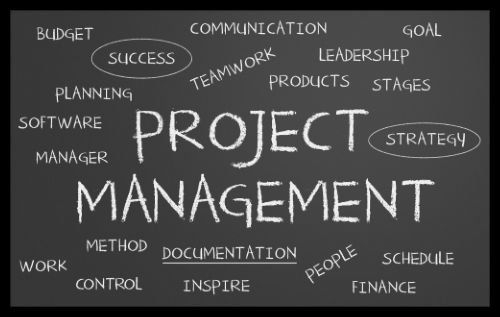Introduction
In the dynamic field of project management, the cornerstone of success lies in effective schedule management. As we step into 2023, the significance of meticulous project scheduling cannot be overstated. This comprehensive guide aims to provide you with insights into the key components, tools, and strategies for mastering project schedule management in the coming year.
Key Components of Project Schedule Management
Project schedules are the blueprints that guide project teams, outlining tasks, timelines, and resource allocations. Understanding the critical components of project schedule management is vital for achieving project success. Project managers must leverage sophisticated tools and software to facilitate effective time estimation, ensuring that project timelines are both realistic and achievable.
Creating a Project Schedule
The bedrock of a successful project schedule lies in the identification and sequencing of tasks. Allocating resources efficiently ensures that the project progresses smoothly. In this section, we will delve into the intricacies of task identification, sequencing, and resource allocation to empower project managers with the knowledge to navigate these crucial aspects.
Gantt Charts: A Powerful Project Management Tool
Among the most potent tools in project schedule management is the Gantt chart. These visual representations of project timelines offer unparalleled insights into task dependencies and project milestones. Learn not only the benefits of using Gantt charts in project scheduling but also how to create and harness their power for optimal project management.
Critical Path Method (CPM)
The Critical Path Method (CPM) stands as a cornerstone in project schedule management. Discover how to identify critical activities, manage the critical path, and optimize project timelines for maximum efficiency. This section aims to demystify the CPM, providing actionable insights into its application in your projects.
Resource Management in Project Scheduling
Balancing resource allocation is crucial for preventing bottlenecks and ensuring the seamless flow of a project. Strategies for effective resource management will be explored in detail, providing valuable insights for project managers to navigate the complexities of resource distribution within their projects.
Project Schedule Monitoring and Control
Continuous monitoring and control are imperative for keeping projects on track. Learn how to implement changes to the schedule when necessary, address delays promptly, and maintain a proactive stance toward potential disruptions. This section emphasizes the importance of vigilance and adaptability in the face of evolving project dynamics.
Adaptability in Project Scheduling
In the unpredictable world of project management, adaptability is key to success. Discover strategies for dealing with unexpected changes and uncertainties while balancing flexibility with adherence to deadlines. This section aims to equip project managers with the tools and mindset needed to navigate the dynamic landscape of project scheduling.
Collaboration and Communication
Effective communication and collaboration are the glue that holds a project team together. Explore the role of communication in project scheduling and discover collaborative tools for streamlined team coordination. This section underscores the importance of fostering an environment where clear communication and collaboration thrive.
Best Practices in Project Schedule Management
Success leaves clues, and in this section, we will analyze successful project scheduling examples. Learn from the experiences of others, emphasizing continuous improvement, feedback loops, and the integration of lessons learned into future projects. This section provides a roadmap for project managers to elevate their scheduling practices.
Case Studies: Successful Project Schedule Management
Real-world case studies provide actionable insights into successful project schedule management. Explore examples of projects that have excelled in scheduling, extracting key takeaways and lessons for application in your projects. This section offers a practical understanding of how effective scheduling principles are applied in diverse project scenarios.
Future Trends in Project Schedule Management
The landscape of project scheduling is evolving with technological advancements. Stay ahead of the curve by exploring emerging technologies and predictions for the future of project schedule management. This section aims to equip project managers with foresight, enabling them to embrace and leverage advancements in project scheduling.
Common Challenges and Solutions
No journey is without its challenges. Identify common challenges in project scheduling and discover effective strategies for overcoming obstacles and setbacks. This section provides practical insights into troubleshooting, ensuring that project managers are prepared to handle the unexpected twists and turns in project scheduling.
Benefits of Effective Project Schedule Management
Efficient project schedule management yields numerous benefits, including enhanced project efficiency, client satisfaction, and a positive team culture. Discover the multitude of advantages that effective scheduling brings to your projects. This section outlines the tangible and intangible benefits that contribute to the overall success of projects.
Conclusion
In conclusion, the importance of project schedule management cannot be overstated. As we navigate the complexities of project management in 2023, adopting effective scheduling practices will be the key to success. Implement the strategies outlined in this guide to ensure your projects are not only delivered on time but exceed expectations.
FAQs
- What is the role of project schedules in project management?
- Project schedules serve as roadmaps, outlining tasks, timelines, and resource allocations for project teams. They provide a structured plan that guides the team throughout the project lifecycle.
- Why is adaptability crucial in project scheduling?
- Adaptability is crucial because projects are dynamic, and unexpected changes are inevitable. Being adaptable allows project managers to respond effectively to uncertainties, ensuring that the project stays on course despite unforeseen challenges.
- How do Gantt charts benefit project scheduling?
- Gantt charts offer a visual representation of project timelines, making it easier to understand task dependencies, durations, and milestones. This visual clarity enhances communication and planning, contributing to more effective project scheduling.
- What are the key components of resource management in project scheduling?
- Resource management involves balancing the allocation of human and material resources to ensure optimal project performance. This includes avoiding resource overloading, addressing bottlenecks, and strategically distributing resources to meet project goals.
- How can project managers address common challenges in project scheduling?
- Project managers can address challenges by proactively identifying them, implementing effective strategies, and continuously learning from setbacks. Regularly reviewing and adapting the project schedule, along with fostering open communication within the team, contributes to overcoming common challenges.

